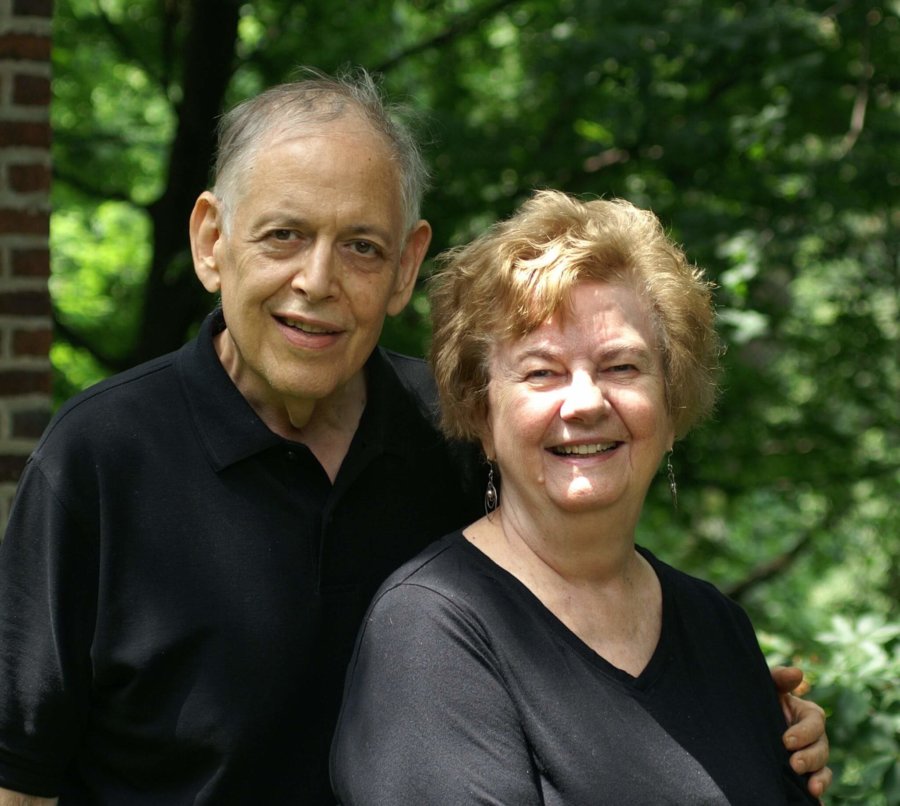Thank You Fritz

VoegelinView is now an institution. With more than a decade of continuous publication behind it, VoegelinView has a track record that would be the envy of many more celebrated initiatives. And, while it is now published by the Eric Voegelin Society, it was initially an idea in the mind of one man. That indispensable pioneer is Fritz Wagner. Lacking endowments, institutional resources, or assistance of any variety, it was simply the brainchild of one particularly far-sighted person. During the time when computers and the internet were just becoming ubiquitous Fritz could see that this would be the mode of communication in the future. While the rest of us were typing and mailing, Fritz had already embraced listservs, blogs, and websites. He could see that an online journal was the wave of the future.
His luddite colleagues in the ramshackle Voegelin community kept their doubts to themselves. A man is entitled to try, they reasoned, and we have nothing to lose. Who knew it would become the venerable and respected institution it is today? But at the time, I confess we yielded to our laissez-faire inclinations (never too far away), as Fritz undertook the herculean labors involved in turning his dream into a reality. It was good that he had reached the stage in life when he could afford to teach himself the arcana of online publishing, soft-ware, hard-ware, malware, and all the attendant perils of the cyberworld. Fritz’s periodic reports on the activities of VoegelinView prompted us to marvel that a man evidently our senior possessed such cutting edge mastery of the technology of the day. In an era when so many promising startups flamed out after the first burst of enthusiasm, it is astonishing that we can now look back on the steady record of publication he had set in motion. As the originator of our virtual polis Fritz has been that individual whom Aristotle name as “the greatest benefactor.”
Of course the spark had come long before in his own encounter with Eric Voegelin. Somehow Voegelin had managed to stir something in a twenty-year old Notre Dame undergrad that would remain with him for the rest of his life. It was thus heartening to see that a teacher could have such an impact on a student who was in his own way ready to receive it. Fritz’s interest in Voegelin’s work, long after he had retired from the legal profession to which he had devoted himself, attests to the extraordinary hold of a great thinker on a responsive student. Of course legal matters were not too far away from the great issues of principle that had absorbed Voegelin. It was his affinity with the world of ideas that enabled Fritz to participate and move comfortably within the intellectual community of the Eric Voegelin Society. His success in running an academic website was not entirely due to his technical prowess. Along the way he had gained a considerable grasp of the substantive issues and displayed impressive editorial judgement.
None of it would have been possible if Fritz had not possessed his own considerable love of learning along with a deep spiritual sensitivity. It was this auspicious beginning that had made possible the astonishing transition, from an online discussion board to the full-fledged reality of an archived journal that we see in VoegelinView today. Of course the work inevitably involved the enlistment of others, beginning with Fritz’s wife, Judy (who is also owed our considerable debt of gratitude). After that we have the successive editors who took charge of the new offspring as it struggled to make its way in the world. Beginning with Ron Srigley, this meant an intentional broadening of the range of content, as the mainly Voegelin-related materials would never supply enough for the hungry beast an online journal turns out to be. This expansion has accelerated exponentially under our current editor, Lee Trepanier. In many ways he has realized the potential of Fritz’s vision as VoegelinView morphes into a more capacious outlet of broad intellectual interest. Yet it retains the inspirational link to the questions and approaches that emanate from Voegelin’s own expansive inquiry. The connection with the EVS and its annual and occasional meetings ensures that this is the case, as well as the commitment to support and facilitate broader familiarity with the Voegelin corpus itself.
None of this happy convergence requires much prompting, as it is the fruit of the natural evolution of a wide and diverse community of collaborators. Each is free to pursue his or her own interests and there is no party line to be enforced. We may be likeminded in many respects but we are from being same-minded. Even occasional disagreements can break out and their airing is warmly encouraged. In the end VoegelinView was always more than a vehicle for burnishing professional reputations. Its genesis lay further back in a genuine sharing of interest in problems, as well as the common theoretical framework drawn in different ways from Voegelin’s own work. Without that sharing of perspectives the whole enterprise would long have fallen by the wayside and even Fritz’s formidable communication gifts would not have been sufficient. It is rather the case that his initiative bore fruit because it found ready support among individuals who strongly desired the means of continuous interaction he provided, even if at the time none of them could even articulate it. In the gaps and interruptions between actual meetings the reviews, articles, postings and exchanges of VoegelinView give our collaborative enterprise a tangible permanent presence.
An additional testament to the more embodied reality is surely provided by Fritz’s own photographic record of the participants at our actual meetings. Unfortunately we have not been as successful at finding a means of sustaining that most touching initiative he so thoughtfully began. He understood that the persons involved are always more than what they say, and he lavished attention on the social as well as professional interactions that suggested something of a family outing about the occasions. Of course Fritz’s own love of family is evident in his readiness to share stories of his own family and of what is most important to him. But what is less noticed is the extent to which he has made us all into a kind of extended Voegelin family, a prospect that neither he nor the rather formal German professor he encountered at Notre Dame would scarcely have guessed. Yet it is to the credit of each of them that a kind of filial bond was forged in that particular classroom, with unforeseen ripples into the larger world beyond them. Through Fritz Wagner we have all gained a view of Eric Voegelin that now continues in the pages of VoegelinView.
Please see tributes from John von Heyking, Paul Caringella, Glenn Hughes, and Harald Bergbauer.



